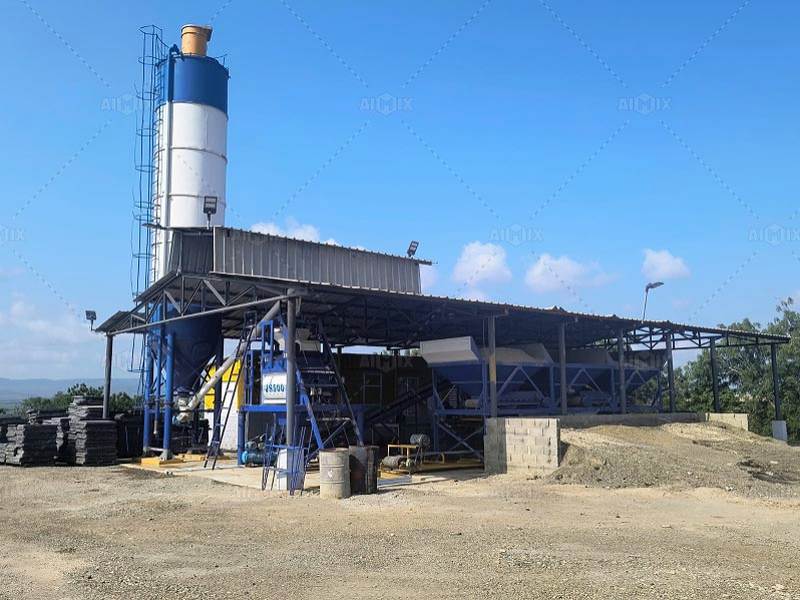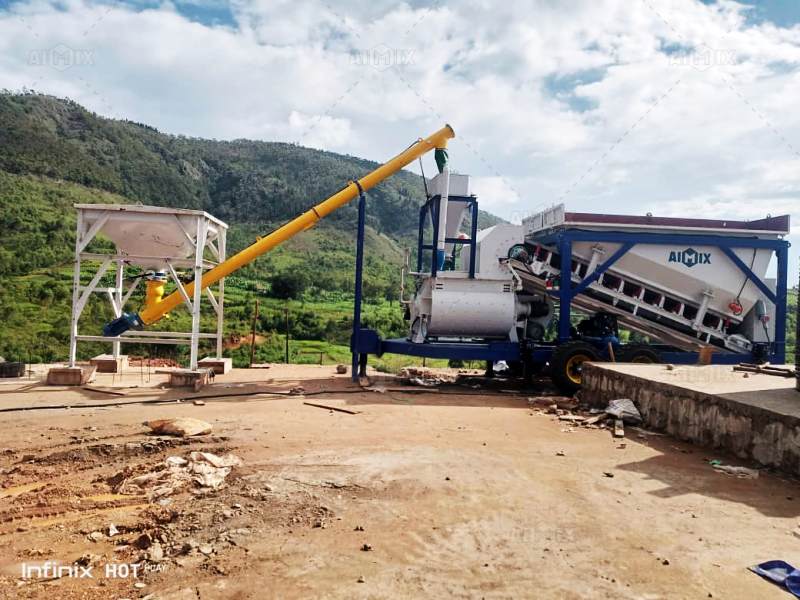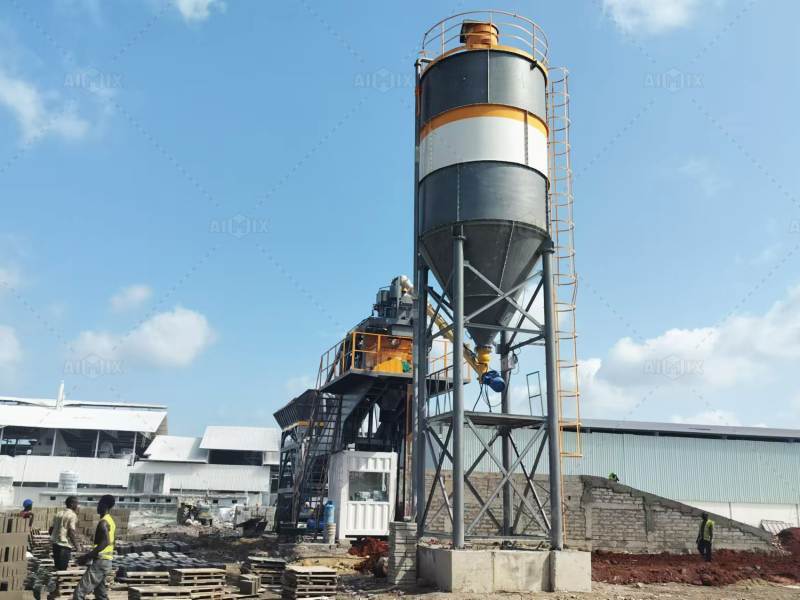As urban areas expand rapidly and land availability becomes more limited, the construction industry is turning to smarter, more adaptable solutions. One innovation gaining significant attention is the compact concrete batching plant. Designed to deliver efficiency, flexibility, and consistent concrete output within a smaller footprint, these plants are becoming the go-to choice for modern urban construction.
Whether you’re building commercial towers, bridges, housing complexes, or public infrastructure, a compact batching plant provides the right mix of mobility, space efficiency, and performance. This article explores why compact concrete batching plants are becoming increasingly popular and how they compare with larger plants, mobile concrete plant systems, and traditional portable batching plant setups.

1. What is a Compact Concrete Batching Plant?
A compact concrete batching plant is a scaled-down version of a traditional stationary plant, typically integrating mixing, weighing, control, and storage systems into a smaller, modular design. These plants are ideal for small to mid-size projects where space, budget, or installation time is constrained.
Despite their size, modern compact plants often include advanced features such as:
-
Automated control systems (PLC or SCADA)
-
High-efficiency mixers (twin-shaft or planetary)
-
Modular silos and aggregate storage
-
Quick assembly and disassembly
-
Easy relocation options
2. Perfect Fit for Urban Job Sites
Urban job sites are often located in densely populated areas with limited staging space. Compact batching plants shine in such scenarios by offering:
● Minimal Land Use
These plants typically require 30–50% less space than standard stationary plants. This makes them ideal for projects within cities where land is both scarce and expensive.
● Low Noise and Dust
Many compact plants come equipped with enclosed mixing systems, dust collectors, and noise-reducing designs, helping to comply with strict urban environmental regulations and maintain neighborhood goodwill.
● Easy Permitting
Smaller plants often face fewer regulatory hurdles due to their modularity and lower emissions. This can shorten the setup timeline significantly.
3. Mobility and Flexibility
Modern mobile concrete plant designs overlap significantly with compact plants. Many compact models are also portable, blurring the line between stationary and mobile batching systems.
● Easy Relocation
Compact and portable batching plants can be dismantled and reassembled quickly, making them perfect for projects with phased development or shifting jobsite needs.
● Reduced Setup Time
Compared to traditional concrete plants, compact units can be installed and commissioned in as little as 3–5 days, significantly reducing downtime and speeding up project timelines.

4. Cost-Effective Investment
Investors and contractors are increasingly drawn to compact plants due to their lower capital and operating costs. Here’s why:
-
Lower equipment cost: Compared to full-size plants, compact units cost significantly less upfront.
-
Less civil work: Foundation and infrastructure requirements are minimal.
-
Lower transport cost: Units are modular and easy to ship, reducing logistics costs.
-
Energy efficiency: Smaller mixers and automation reduce fuel and power consumption.
Together, these factors translate to a faster return on investment (ROI)—often within 1 to 2 years depending on usage and location.
5. Consistent Quality and Modern Control
Despite their small footprint, compact concrete mixer plants don’t compromise on performance or quality.
● Accurate Weighing and Dosing
High-precision load cells and digital controls ensure consistent batching accuracy, even in fluctuating urban environments.
● Integrated Automation
Most compact plants now include touchscreen PLC systems or IoT-based remote controls for seamless operation. This simplifies training, reduces operator errors, and enables better control over the mixing process.
6. Adaptability Across Urban Construction Scenarios
Compact concrete batching plants are versatile and fit a wide range of urban project types:
| Project Type | Advantage of Compact Plant |
|---|---|
| Residential Buildings | Easy to install within tight construction zones |
| Roads and Flyovers | Rapid relocation and high hourly output |
| Commercial Towers | Minimal disruption to nearby businesses |
| Bridges & Infrastructure | Mobility and flexibility for phased construction |
| Renovation Projects | Minimal setup time and environmental footprint |

7. Comparison: Compact vs Mobile vs Portable Batching Plant
| Feature | Compact Plant | Mobile Concrete Plant | Portable Batching Plant |
|---|---|---|---|
| Footprint | Smallest | Moderate | Moderate to large |
| Installation Time | 3–5 days | 5–10 days | 7–15 days |
| Mobility | Moderate | High | Moderate |
| Best For | Urban projects | Remote sites | Temporary infrastructure |
| Investment Cost | Low | Medium | Medium to High |
| Output Capacity | Medium (25–60 m³/h) | Medium to High | Medium to High |
Compact plants strike a perfect balance—delivering the space efficiency of portable models with some of the mobility and features of full mobile plants.
8. Sustainability and ESG Benefits
Urban construction projects increasingly prioritize sustainability. Compact plants help contractors meet environmental targets through:
-
Reduced raw material waste with precise dosing systems
-
Lower CO₂ emissions via efficient power usage
-
Less noise and dust, improving community relations
-
Integration with green admixtures and recycled materials
Choosing a compact or mobile concrete plant helps your project align with ESG goals and secure eco-conscious contracts.
Conclusion: A Smart Move for Modern Builders
The rising popularity of compact concrete batching plants is no coincidence. As cities grow vertically and regulations become stricter, contractors need adaptable, clean, and high-performance solutions. Whether you’re managing a multi-story build or fast-track infrastructure project, compact plants offer the mobility, precision, and affordability needed to stay competitive.
Interested in a compact, portable batching plant for your next urban project? Contact us today for a custom configuration that fits your space, budget, and schedule.